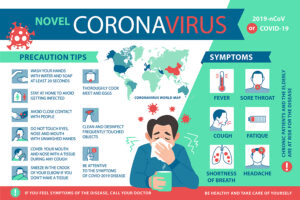It is important to realize that multisystem inflammatory syndrome after Covid-19 occurs about 4 weeks following a spike of Covid-19 cases. Notably, children typically present with fever, abdominal pain, neck pain, diarrhea, bloodshot eyes and tiredness. CNN reviewed this syndrome here.
Markedly, the history usually reveals that they had Covid-19 just 4 weeks earlier and seemed to recover well from it. But somehow, they did not recover 100% from Covid-19, but instead deteriorated again. Fortunately, a 10-hour immunoglobulin drip cures most of these children. But 26% of the young patients with multisystem inflammatory syndrome in children (MIS-C) die.
Long-term follow-up of children who had MIS-C
Dr. Grant Schulert, a pediatric rheumatologist at Cincinnati Children’s Hospital said: “Most of our children are recovering pretty well, but we don’t know whether this is going to have long-term effects, particularly on the heart.” Dr. Sam Dominguez, an associate professor of pediatrics at the Children’s Hospital Colorado, saw a dramatic increase of MIS-C cases. This was between December 2020 through February 2021. His Hospital is part of a multicenter study. Researchers followed children who were diagnosed with MIS-C for up to one year.
Multisystem inflammatory syndrome in children, a quick summary
This syndrome affects children mostly less than 5 years of age. Initially it was assumed that children would be less likely to have Covid-19 coronavirus infections. Pediatric multisystem inflammatory syndrome (MIS-C ) is the second phase of a coronavirus infection. Indeed, symptoms include abdominal pain, gastrointestinal symptoms and inflammation of the heart. To clarify, symptoms are persistent fever, inflammation and poor function in one or more organs. Nevertheless some children present with shock. In this case these children need admission and treatment in a pediatric ICU ward right away. The reasons for the disease are not entirely clear. Some doctors think that the cytokine storm initiated by the Covid-19 coronavirus is responsible for this syndrome. It also may be an overreaction of the immune system that may be the underlying cause.
Publication re. hospitalized children with Covid-19 and MIS-C
Children and older persons up to age 21 were followed in a study that was published on March 5, 2021.
This was a publication in the medical journal JAMA (Journal of the American Medical Association). The investigators were interested to see how many younger patients developed neurological symptoms. Out of 1625 patients age 21 or younger hospitalized for MIS-C there were 22% who developed neurological symptoms. 12% developed life-threatening neurological disorders. 40% survived with other neurological problems and 26% died. Researchers conducted this study at 61 hospitals in 31 states. Patients with underlying neurological disorders were more likely to have neurological complications. Such underlying conditions were seizure disorders, autism, neuromuscular disorders, or developmental delay.
Outcome of neurological involvement with Covid-19
Covid-19 caused very varied neurological conditions. About half of these cases were happening in patients who did not have a previous neurological condition, the other half did have a pre-existing neurological condition. For most of these neurological cases the symptoms were transient and after a brief hospitalization these patients could be sent home. Long-term observation of these patients may reveal permanent problems, but at this point it is not clear whether this is the case.
Conclusion
A multisystem inflammatory syndrome in children (MIS-C) typically follows 1 month after spikes of Covid-19 occur in the community. About 4 weeks later young patients came to hospitals with neurological symptoms. Symptoms of MIS-C also include abdominal pain, gastrointestinal symptoms and inflammation of the heart. Some researchers think that the cytokine storm initiated by the Covid-19 coronavirus is responsible for this syndrome. Fortunately, a 10-hour immunoglobulin drip cures most of these children. Further research is necessary to further investigate these patients.







